“We have been more than patient. We’ve tried sanctions. We’ve tried the carrot of oil for food and the stick of coalition military strikes. But Saddam Hussein has defied all these efforts and continues to develop weapons of mass destruction.
The first time we may be completely certain he has nuclear weapons is when, God forbid, he uses one. We owe it to all our citizens to do everything in our power to prevent that day from coming.”
~President George W. Bush
Speech to the United Nations General Assembly
September 12, 2002
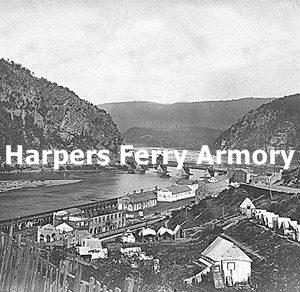
1862 – The Battle of Harpers Ferry began.
As General Robert E. Lee’s Army of Northern Virginia advanced into Maryland, he made plans to capture the vital Union garrison at Harpers Ferry, Virginia (now West Virginia).
Although Maj. Gen. George McClellan’s Army of the Potomac was in pursuit (at his usual leisurely pace), Lee – in a bold maneuver – divided his army, sending three columns under Gen. Thomas “Stonewall” Jackson to Harpers Ferry while the rest of the army marched towards Hagerstown, Maryland.
Surrounded on three sides by steep heights, the terrain at Harpers Ferry made it nearly impossible to defend, a problem made worse by the Union commander, Colonel Dixon S. Miles, who lacked experience leading troops and insisted on keeping most of the troops near the town instead of taking up commanding positions on the surrounding heights.
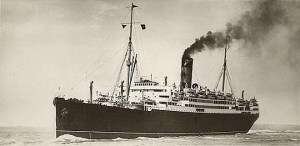
1942 – The RMS Laconia, a former Cunard White Star ship put to use to transport troops, including prisoners of war, was in the South Atlantic bound for England when it encountered U-156, a German submarine.
The sub attacked, sinking the troop ship and imperiling the lives of more than 2,200 passengers. But as Capt. Werner Hartenstein (the sub commander) was to learn, among those passengers were 1,500 Italians POWs.
Realizing that he had just endangered the lives of so many of his fellow Axis members, he put out a call to an Italian submarine and two other German U-boats in the area to help rescue the survivors.
In the meantime, one French and two British warships sped to the scene to aid in the rescue. The German subs immediately informed the Allied ships that they had surfaced for humanitarian reasons.
The Allies assumed it was a trap.
An American B-24 bomber, the Liberator, flying from its South Atlantic base on Ascension Island, saw the German sub and bombed it – despite the fact that Hartenstein had draped a Red Cross flag prominently on the hull of the surfaced sub. The U-156, damaged by the air attack, immediately submerged.
Admiral Karl Donitz, supreme commander of the German U-boat forces, had been monitoring the rescue efforts. He ordered that “all attempts to rescue the crews of sunken ships…cease forthwith.”
Consequently, more than 1,400 of the Laconia‘s passengers, which included Polish guards and British crewmen, drowned.
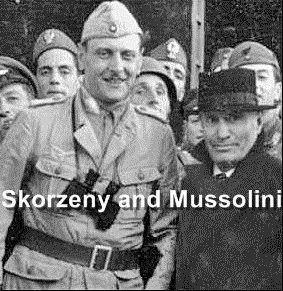
1943 – Otto Skorzeny, a colonel in the German Waffen-SS, made a daring rescue of deposed Italian dictator Benito Mussolini from captivity.
Skorzeny took a contingent of his troops up in gliders and crashed them on the steep rocky slopes surrounding Hotel Campo Imperatore, a ski resort in Italy’s Gran Sasso, high in the Apennine Mountains.
Skorzeny and his troops stormed the hotel, capturing it without a shot. After finding the room where Mussolini was held prisoner, Skorzeny entered and destroyed the transmitting equipment.
Mussolini was flown to Vienna in an aircraft that had landed after the assault began.
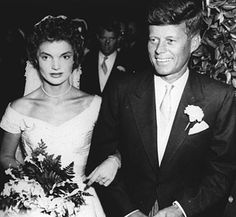
1953 – Senator John Fitzgerald Kennedy of Massachusetts married Jacqueline Lee Bouvier, a photographer for the Washington Times-Herald, at St. Mary’s Church in Newport, Rhode Island.
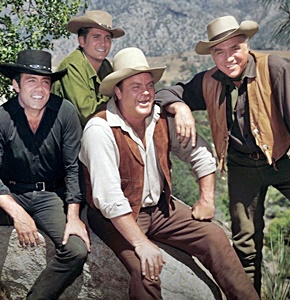
1959 – Bonanza premiered on NBC. Lasting 14 seasons and 431 episodes, Bonanza is NBC’s longest-running Western, the second-longest-running Western series on network television (behind CBS’s Gunsmoke).
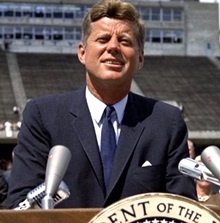
1962 – Speaking at Rice University in Houston, President John F. Kennedy – delivering one of the most iconic speeches in U.S. history – reaffirmed that the U.S. would put a man on the moon by the end of the decade.
“No nation which expects to be the leader of other nations can expect to stay behind in this race for space … This will be done in the decade of the sixties. It may be done while some of you are still here at school at this college and university. It will be done during the terms of office of some of the people who sit here on this platform. But it will be done. And it will be done before the end of this decade.”
On July 20, 1969, almost seven years after Kennedy’s speech, Apollo 11 landed the first manned spacecraft on the Moon.

1992 – Anthony Perkins died from AIDS-related pneumonia at the age of 60.
He is best remembered for his portrayal of the murderous motel owner Norman Bates in the Alfred Hitchcock thriller Psycho in 1960; he reprised that role in three regrettable sequels (1983, 1986, and 1990).
He earned an Academy Award nomination for his portrayal of a young Quaker in the film Friendly Persuasion. Perkins specialized in playing awkward young men, notably in Fear Strikes Out, The Tin Star, and Desire Under The Elms, before attracting international notice for Psycho.
Did you know? In 1957, Perkins, under the name of Tony Perkins, released a single which peaked at #24 on the Billboard Hot 100.
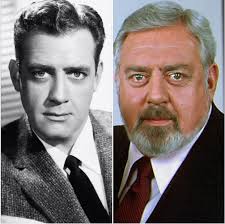
1993 – Acting icon Raymond Burr died of inoperable liver cancer at the age of 76. He played the title roles in the television dramas Perry Mason and Ironside.
Burr’s early acting career included roles in dozens of films, usually as the villain. He portrayed the suspected murderer in the Alfred Hitchcock thriller Rear Window in 1954, and he also had villainous roles in Desperate, M, Pitfall and A Cry On The Night. His villains were also seen in Westerns, period dramas, and horror films.
Burr played Mason from 1957 to 1966, winning two Emmy Awards along the way. From 1967 to 1975, he played the title role in Ironside. Tired from the strain of weekly television, he gave up on series work, but returned to play Mason in a successful series of Perry Mason television films, starring in 26 of them before his death in 1993.
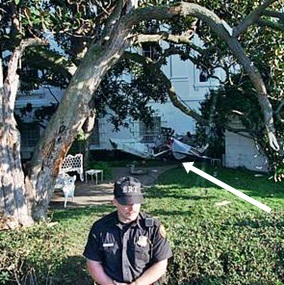
1994 – Frank Eugene Corder, a truck driver with very limited knowledge of piloting a plane, stole a Cessna 150 and departed from Aldino Airport in Maryland while severely intoxicated.
He crashed the stolen aircraft onto the South Lawn of the White House at 1:49 a.m., apparently trying to hit the building. The aircraft skidded across the ground, struck a magnolia tree just west of the South Portico steps, and hit the southwest corner of the first floor of the building. Corder was killed and was the sole casualty.
The crash caused a re-evaluation in security procedures around the White House, as the pilot had entered restricted airspace. Though the White House is rumored to be equipped with surface-to-air missiles, none were fired. The Secret Service has neither confirmed nor dispelled the rumor.
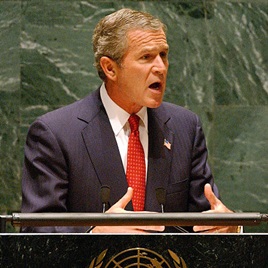
2002 – President George W. Bush told the United Nations to confront the “grave and gathering danger” of Saddam Hussein’s Iraq.
Bush made it plain that America would rather move in concert with other nations, but he also made it clear that America, in the end, would act alone against Iraq if need be.
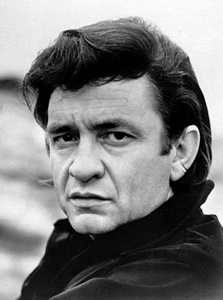
2003 – Johnny Cash died of complications from diabetes.
Cash is an inductee in the Rock & Roll Hall of Fame, the Country Music Hall of Fame, the Nashville Songwriters Hall of Fame, the Hit Parade Hall of Fame and the Rockabilly Hall of Fame.

2008 – The Chatsworth train collision occurred at 4:22 p.m. PDT , when a Union Pacific freight train and a Metrolink commuter train collided head-on in the Chatsworth district of Los Angeles.
There were 25 fatalities, and 135 others were injured.
According to the National Transportation Safety Board which investigated the cause of the collision, the Metrolink train ran through a red signal before entering a section of single track where the opposing freight train had been given the right of way by the train dispatcher.
The NTSB faulted the Metrolink train’s engineer, 46-year-old Robert M. Sanchez, for the collision, concluding that he was distracted by text messages he was sending while on duty.
Compiled by Ray Lemire ©2024 RayLemire.com / Streamingoldies.com. All Rights Reserved.

What an interesting read
Lots of new stuff! Perkins as a singer…not bad
The Mussolini rescue…who knew
You surely dug deep with this one and even some good news
Thanks, Mary Helen, but here’s the bad news. “Digging deep” on both the music backstories and the history lessons and music has worn me to a frazzle. I have no time for myself and quite often find myself awake at 2AM just to get the work done. That might have been fine when I was 44 but I’m 74 and the workload has driven me to my knees. I’m sorry but the history lessons have to end tomorrow.
Great read Ray!! I liked the fact that there was some good news on this date!! I also saw your response to Mary Helen and you know I am always thinking about how much you do!! I wish you would slow down!! And I know all of us want what is best for you!! You know how much I care about you and please get some rest!!
Ray we all need to retire and I know how much you love this but it’s time!! I love you and I will get in touch with you later!!
Love ya!!
Thank you, Fred, but I am a long way from retiring. The history columns took a lot more out of me than the music does. I will be just fine as long as I stick to the medleys.
Love ya!